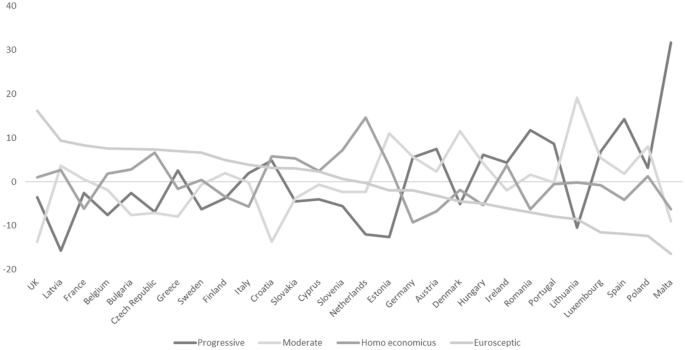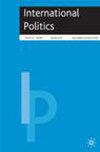To trust or not to trust? ‘Exit’ approaches in EU citizens’ attitudes after Brexit
IF 0.9
Q2 INTERNATIONAL RELATIONS
引用次数: 0
Abstract
Abstract The European Union (EU) is a unique international alliance project, successful in maintaining political stability through its institutional model and decision-making procedures. However, recent economic and border crises, and COVID-19, have shown the institution’s fragility and undermined citizens’ trust. The UK’s 2016 vote to exit the EU demonstrated this. Indeed, Brexit was the first real example of the consequences of intensifying Eurosceptic sentiments. Since then, the fear of a likely ‘contagion’ in other countries has persistently spread. This paper investigates whether and how the Brexit issue impacts on EU citizens. In particular, it aims to understand how European citizens would react to a hypothetical referendum, along UK lines, on exiting the EU. Analysing the European Election Studies (EES) Voter Study 2019, this article tries to identify clusters of European citizens according to their attitudes to European policies, their trust in the EU, and their thoughts on an exit referendum.

相信还是不相信?英国脱欧后欧盟公民态度中的“退出”倾向
欧盟(EU)是一个独特的国际联盟项目,通过其制度模式和决策程序成功地维持了政治稳定。然而,最近的经济危机和边境危机以及COVID-19显示了该机构的脆弱性,并破坏了公民的信任。2016年英国脱欧公投就证明了这一点。事实上,英国脱欧是欧洲怀疑情绪加剧后果的第一个真正例子。从那以后,对其他国家可能“传染”的担忧持续蔓延。本文研究了英国脱欧问题是否以及如何影响欧盟公民。特别是,它旨在了解欧洲公民对一场假设的、与英国类似的脱欧公投会有何反应。本文通过分析《2019年欧洲选举研究(EES)选民研究》,试图根据欧洲公民对欧洲政策的态度、对欧盟的信任以及对退欧公投的看法来确定他们的群体。
本文章由计算机程序翻译,如有差异,请以英文原文为准。
求助全文
约1分钟内获得全文
求助全文
来源期刊
CiteScore
3.10
自引率
7.10%
发文量
47
期刊介绍:
International Politics?is a leading peer reviewed journal dedicated to transnational issues and global problems. It subscribes to no political or methodological identity and welcomes any appropriate contributions designed to communicate findings and enhance dialogue.International Politics?defines itself as critical in character truly international in scope and totally engaged with the central issues facing the world today. Taking as its point of departure the simple but essential notion that no one approach has all the answers it aims to provide a global forum for a rapidly expanding community of scholars from across the range of academic disciplines.International Politics?aims to encourage debate controversy and reflection. Topics addressed within the journal include:Rethinking the Clash of CivilizationsMyths of WestphaliaHolocaust and ChinaLeo Strauss and the Cold WarJustin Rosenberg and Globalisation TheoryPutin and the WestThe USA Post-BushCan China Rise Peacefully Just WarsCuba Castro and AfterGramsci and IRIs America in Decline。

 求助内容:
求助内容: 应助结果提醒方式:
应助结果提醒方式:


